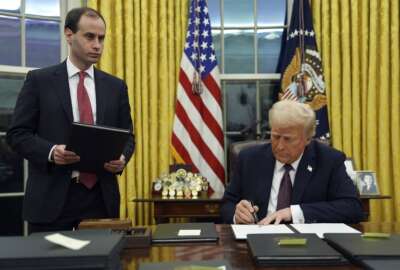AFGE files unfair labor practice against EPA for firing scientists
A federal union claims the Environmental Protection Agency fired two scientists for trying to organize a union at the EPA's National Exposure Research Lab in...
A federal union claims the Environmental Protection Agency fired two scientists for trying to organize a union at an EPA lab in Athens, Ga.
The American Federation of Government Employees filed an unfair labor practice charge with the Federal Labor Relations Authority, saying the firings of the two employees and disciplinary actions against two other employees were to “chill employees in the exercise of their rights to participate with the union.” The scientists worked for the Ecosystems Research Division of the EPA’s National Exposure Research Lab.
AFGE Local 534 began organizing employees in that division in March, and union ballots were mailed to employees Aug. 28, according to the charge.
EPA said it does not publicly discuss personnel matters, according to an emailed statement to Federal News Radio.
One employee was suspended Aug. 14 for allegedly turning in travel expenses for travel that was not work-related. The other employee was suspended Aug. 9 for allegedly failing to submit a medical documentation for a health- related absence, AFGE says.
AFGE EPA Council 238 President Charles Orzehoskie said the fired employees had “some problems with management for some time,” but he questioned the timing of the firings happening right before union ballots were mailed out.
“Coincidence goes so far,” he said.
RELATED STORIES
Retaliation, reprisal top EEOC complaints from feds
AFGE’s Cox eyes bigger, better union
Obama extends labor-management council to 2013
Copyright © 2025 Federal News Network. All rights reserved. This website is not intended for users located within the European Economic Area.





